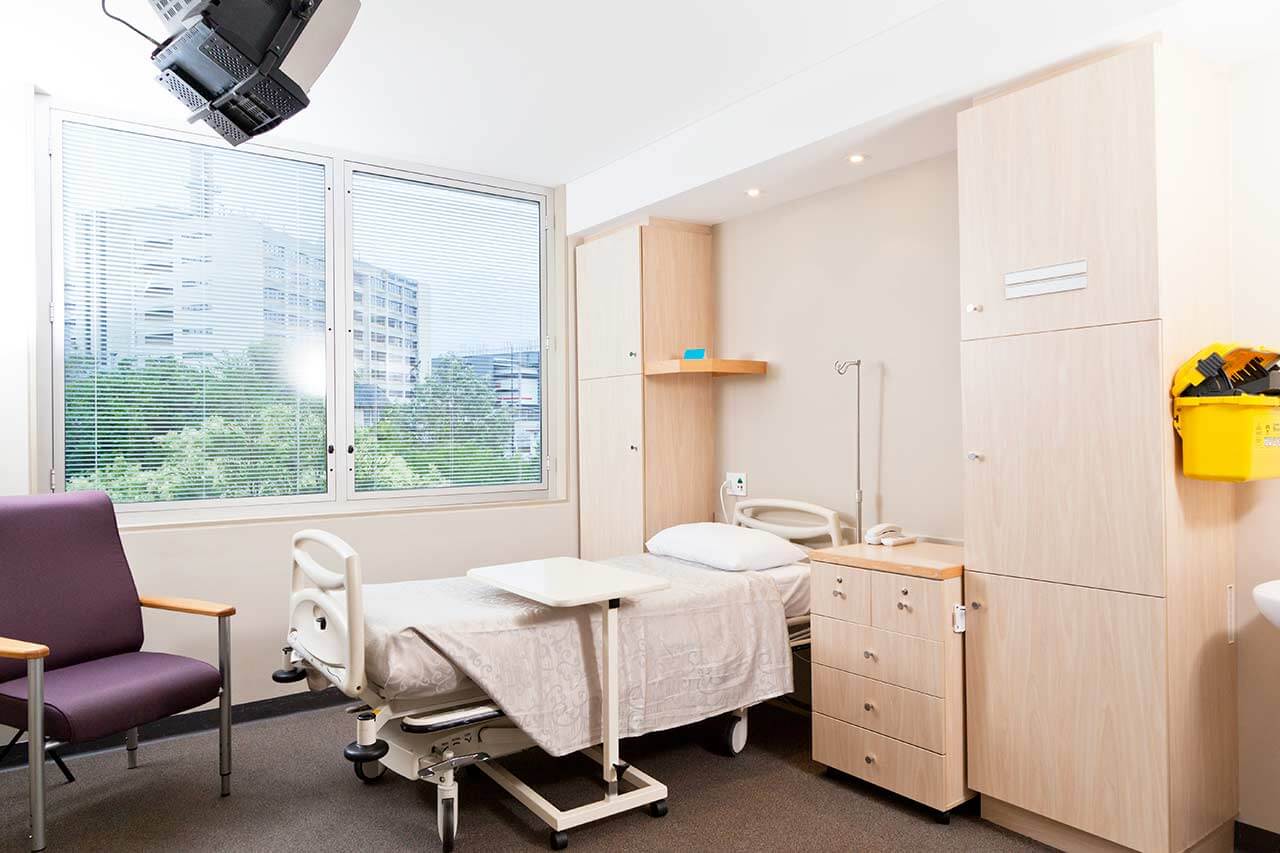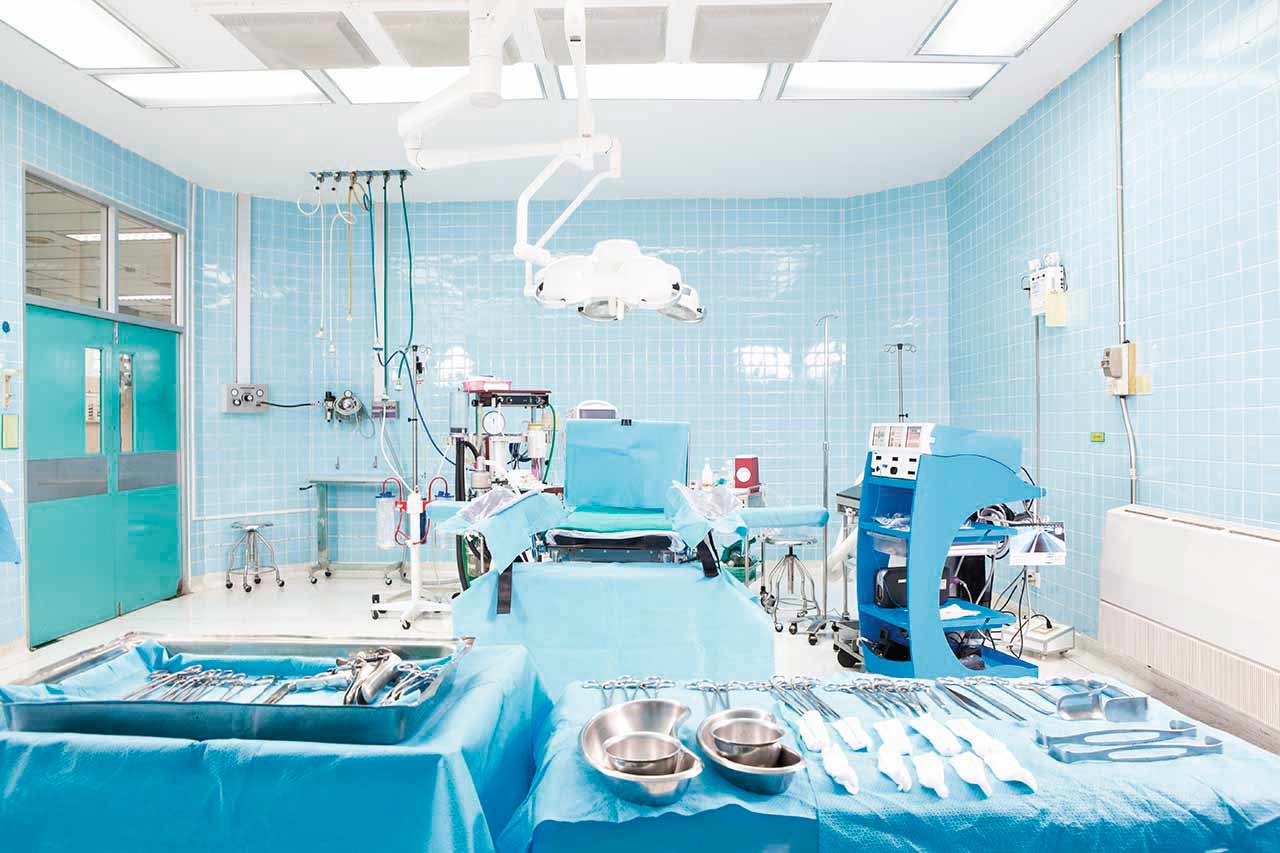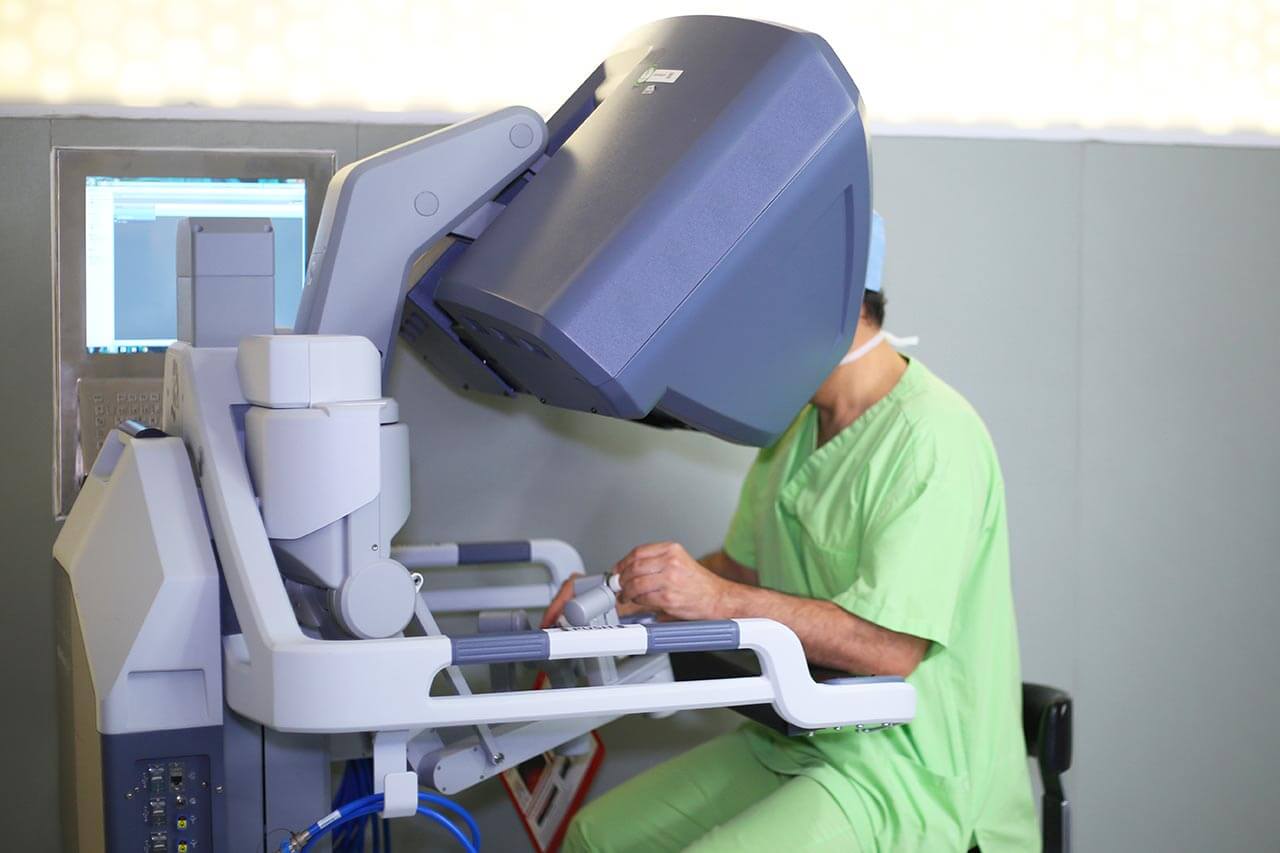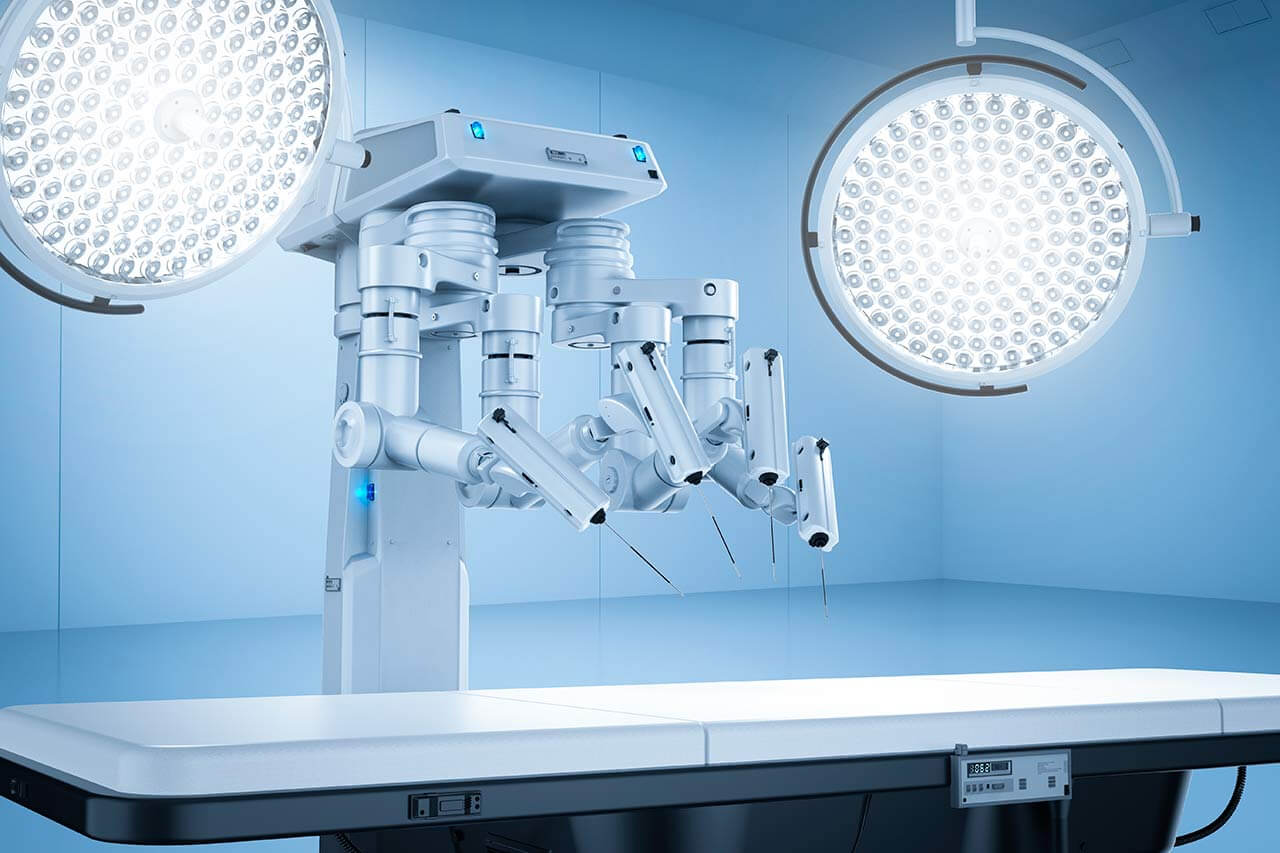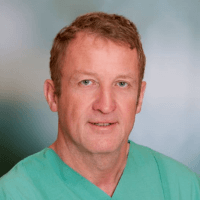
The program includes:
- Initial presentation in the clinic
- clinical history taking
- physical examination
- review of medical records
- laboratory tests:
- complete blood count
- general urine analysis
- biochemical analysis of blood
- indicators of inflammation
- indicators blood coagulation
- synovial fluid aspiration for testing
- X-Ray of the knee
- MRI scan of the knee
- preoperative care
- synovectomy to remove the inflamed lining via arthroscopy
- symptomatic treatment
- control examinations
- physiotherapeutic procedures
- orthopedic appliances
- the cost of essential medicines and materials
- nursing services
- full hospital accommodation
- explanation of future recommendations
Required documents
- Medical records
- X-ray examination, MRI/CT scan (if available)
Service
You may also book:
 BookingHealth Price from:
BookingHealth Price from:
About the department
The Department of Orthopedics, Traumatology and Foot Surgery at the Asklepios Municipal Hospital Bad Wildungen offers the full range of medical services for the diagnostics and treatment of various diseases of the musculoskeletal system. The key areas of the department's specialization include knee, hip and shoulder replacement surgery, including revision interventions, treatment of bone fractures, ligament tears and other injuries, infectious bone diseases, foot diseases and deformities, as well as chronic back and pelvic pain. The department is distinguished by its special competence in the field of joint replacement surgery and has been certified by the German Society for Orthopaedics and Orthopaedic Surgery as the Center for Endoprosthetics since 2016. The department's doctors use in their clinical practice only modern treatment methods, which guarantee effective elimination of mobility limitations and pain. The Chief Physician of the department is Dr. med. Klaus Röde.
The department's orthopedists are proud of their successful experience and outstanding results in the treatment of joint diseases. Most joint replacement surgeries are performed using sparing laparoscopic techniques, which involve only a few skin incisions to insert surgical instruments and a miniature camera that transmits the magnified images of the surgical field to a screen. The doctors also use modern navigation systems for the most accurate and reliable fixation of the prosthesis. The department's doctors specialize in both partial and total knee, hip and shoulder replacement surgery. The choice of the optimal surgical technique is determined depending on the degree of joint damage caused by the pathological process, the patient's age and body constitution, general state of health, etc. The department also successfully performs revision joint replacement surgery – replacement of previously implanted prostheses due to wear, loosening of the bearing elements of the prosthesis, etc.
The department's competence also includes arthroscopic interventions on the joints to treat injuries and pathological changes in the knee, hip, shoulder, elbow and ankle joints. Arthroscopy can be performed for both diagnostic and therapeutic purposes. When performing an arthroscopic procedure, the surgeon makes only two small skin incisions of 5-6 mm in size, through which a special instrument is inserted into the joint cavity. This instrument is called an arthroscope. The arthroscope has a fixed video camera, which allows the surgeon to clearly see all intra-articular structures on a large screen. Thus, when performing arthroscopy, the doctor can accurately detect even the slightest joint lesions and effectively eliminate them.
The department's medical team quite often admits patients with chronic back and pelvic pain. A constant pain in these areas of the musculoskeletal system in most cases leads to immobilization of the patient, which significantly worsens the quality of life. Initially, the orthopedic surgeon conducts the necessary set of diagnostic tests. The diagnosis is based on the study of the patient's medical history, clinical examination, as well as imaging tests (X-ray, CT, MRI). In some cases, the patient with chronic spinal pain may require infiltration of all spinal parts in order to accurately determine the area of the pathological lesion. Depending on the complexity of the clinical case, the most effective treatment is selected for the patient. If possible, the specialists apply only conservative treatment methods: intravenous injection of painkillers, infiltration, physiotherapy and training on special exercise equipment. If conservative treatment does not give a good result, the last line therapy is surgery, which can be performed using minimally invasive techniques with appropriate clinical indications.
The department's service range is complemented by the treatment of foot diseases and deformities. Of particular interest in this field is the correction of hallux valgus and hallux rigidus, claw toes, treatment of ankle joint arthrosis, rheumatic lesions of the ankle joint, treatment of Achilles tendon injuries, ganglion and other pathologies. The treatment can be both conservative and surgical. Most operations are performed using minimally invasive techniques.
The main clinical focuses of the department include:
- Joint replacement surgery, including revision interventions
- Total and partial knee replacement
- Total and partial hip replacement
- Total and partial shoulder replacement
- Arthroscopic interventions for pathological injuries of the knee, hip, shoulder, elbow and ankle joints
- Treatment of chronic back and pelvic pain
- Intravenous injection of painkillers
- Infiltration
- Physiotherapy and training on special exercise equipment
- Surgical treatment
- Treatment of muscle and tendon injuries
- Treatment of bone infections
- Foot surgery
- Correction of hallux valgus and hallux rigidus
- Correction of claw toes
- Ankle arthrosis treatment
- Surgery for rheumatic lesions
- Surgery for Achilles tendon injuries
- Surgery for the correction of bone spur
- Ganglion removal
- Other medical services
Photo of the doctor: (c) Asklepios Kliniken GmbH
About hospital
The Asklepios Municipal Hospital Bad Wildungen positions itself as a modern medical facility, which is focused on the provision of high-quality medical services using state-of-the-art medical technologies and advanced treatment methods. The hospital pays great attention to an individual approach to each patient, which is the basis for a successful treatment result. The medical complex enjoys the status of an academic hospital of the Philipps University of Marburg, thanks to which it has access to innovative medical developments, trains medical students and conducts advanced training for doctors. In addition, the medical facility is part of the Asklepios Kliniken GmbH – one of the three largest and most famous private medical networks in Germany.
The hospital has 10 specialized departments, as well as two interdisciplinary centers and an emergency medical service. The medical team of the hospital, which consists of more than 420 specialists, successfully treats simple common and especially complex diseases of the cardiovascular system, respiratory tract, musculoskeletal system, nervous system, spine, urinary system, etc. The Department of Radiology and the in-house laboratories serve for various diagnostic tests, which allow the doctors to establish an accurate diagnosis and develop the most effective treatment regimen, taking into account the particular clinical case of the patient. The hospital has 195 beds for patient hospitalization, and also provides medical care on an outpatient basis.
The special focus of the clinical activities of the medical facility is surgical treatment. The surgeons from various medical fields with brilliant success perform surgery to treat various diseases of the gastrointestinal tract, blood vessels, neurosurgical diseases, as well as interventions to treat orthopedic diseases. The hospital includes a certified Centre for Endoprosthetics (certified by the German Society of Orthopedics and Trauma Surgery), specializing in knee, hip and shoulder replacement surgery. The surgical treatment involves the use of modern medical technology, laparoscopic surgical techniques, state-of-the-art 3D imaging systems and navigation systems in order to ensure the highest level of safety of surgery.
Despite the many technical innovations in the hospital, the focus of the medical staff is on the patient, his health and comfort. The doctors' work with patients is based on respect and humanity.
Photo: (с) depositphotos
Accommodation in hospital
Patients rooms
The patients of the Asklepios Municipal Hospital Bad Wildungen live in comfortable single and double rooms. Each patient room has a separate bathroom with shower and toilet. The standard patient room furnishings include an automatically adjustable bed, a bedside table, a wardrobe, a TV, a radio and a telephone. The use of mobile phones in some buildings of the hospital is prohibited. The hospital also offers accommodation in a special section called Privita with enhanced-comfort patient rooms, the living conditions in which correspond to the level of rooms in a top-class hotel.
Meals and Menus
The patient and the accompanying person are offered tasty and balanced three meals a day. If for some reason you do not eat all foods, you will be offered an individual menu. Please inform the medical staff about your food preferences prior to treatment. The patients staying in the enhanced-comfort rooms are provided with an individual menu every day.
Further details
Standard rooms include:
Religion
The religious services are available upon request.
Accompanying person
During the inpatient program, the accompanying person can live with the patient in a patient room or a hotel of his choice. Our managers will help you choose the most suitable option.
Hotel
During an outpatient program, the patient can stay at the hotel of his choice. Our managers will help you choose the most suitable option.
